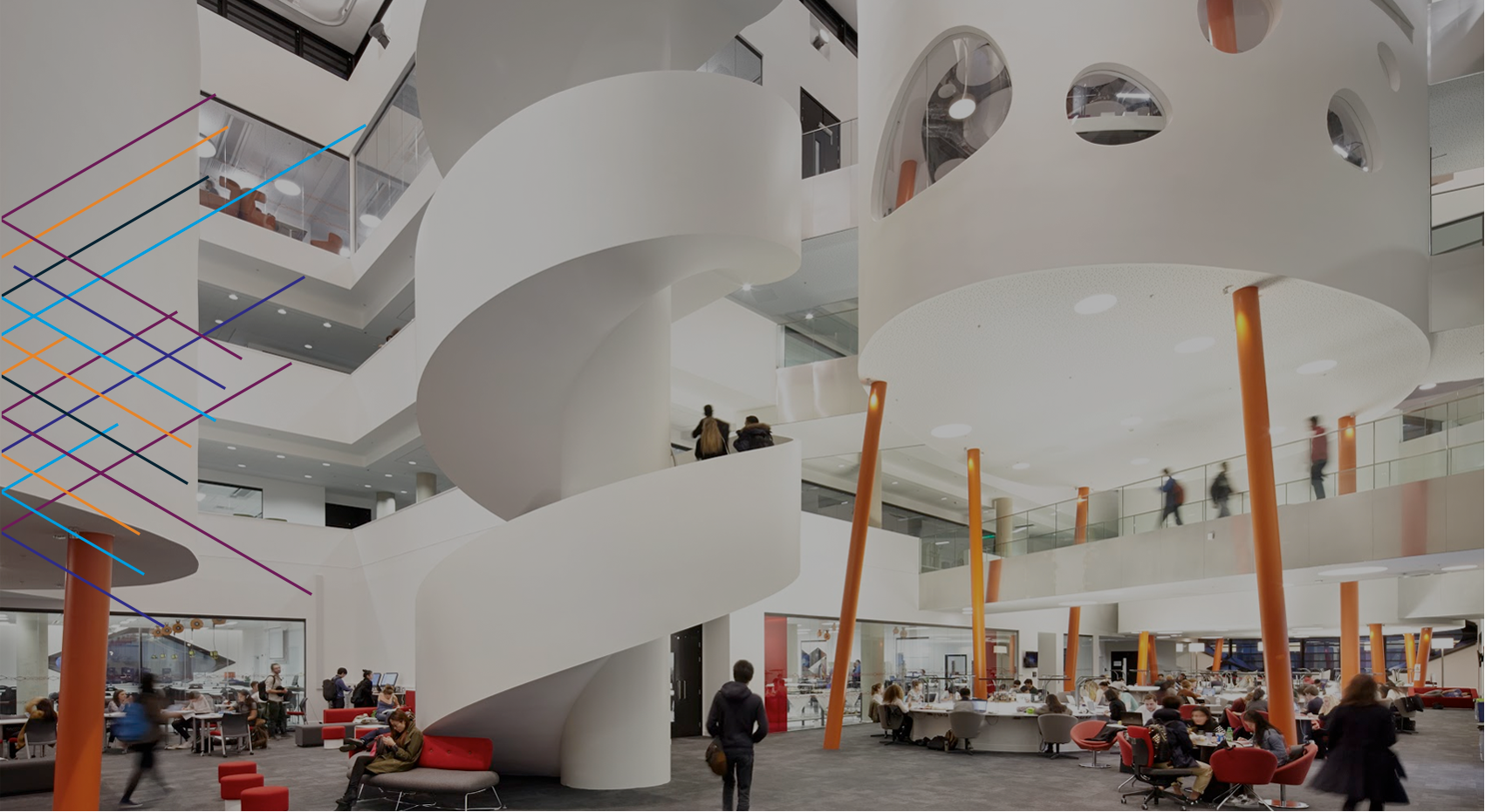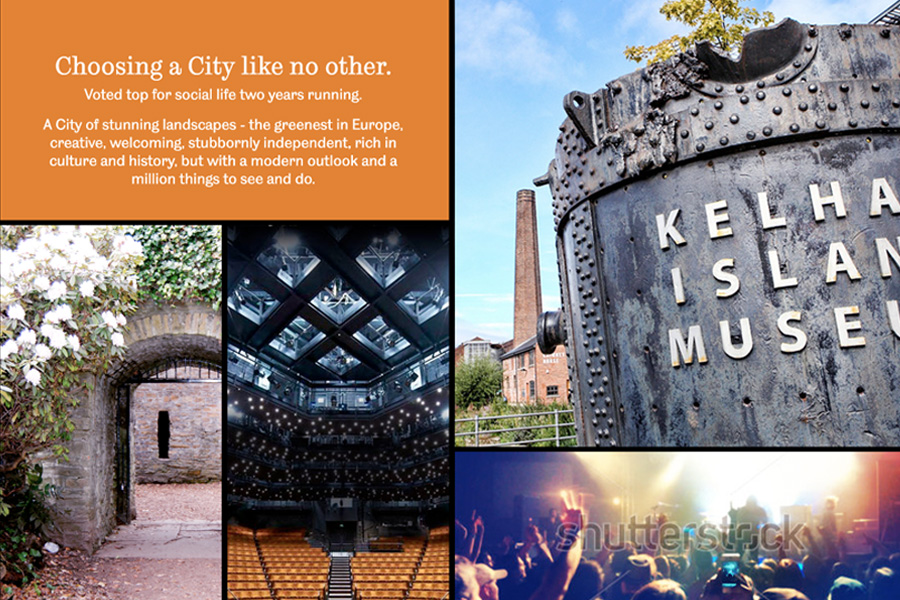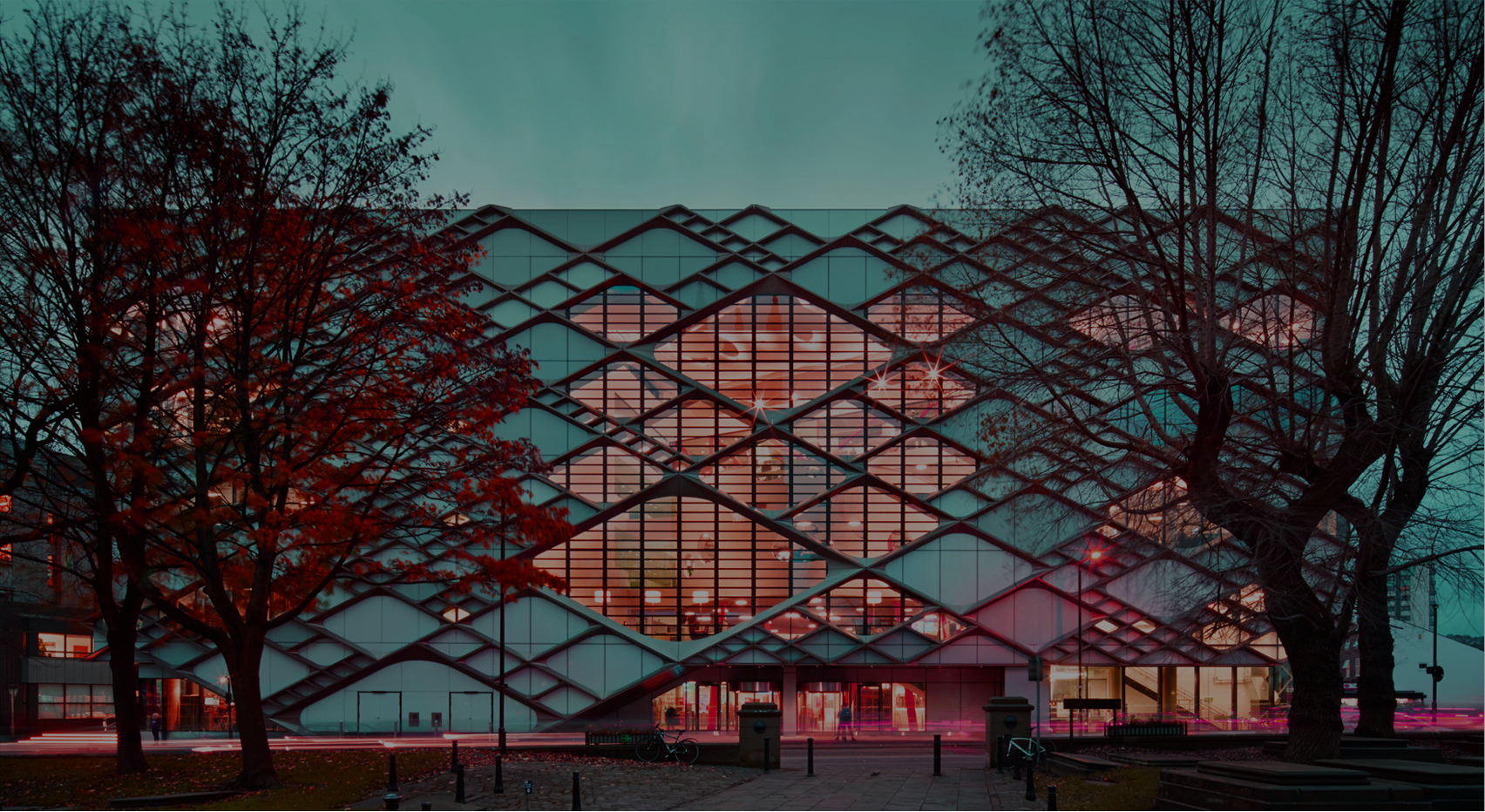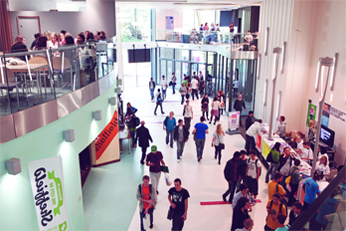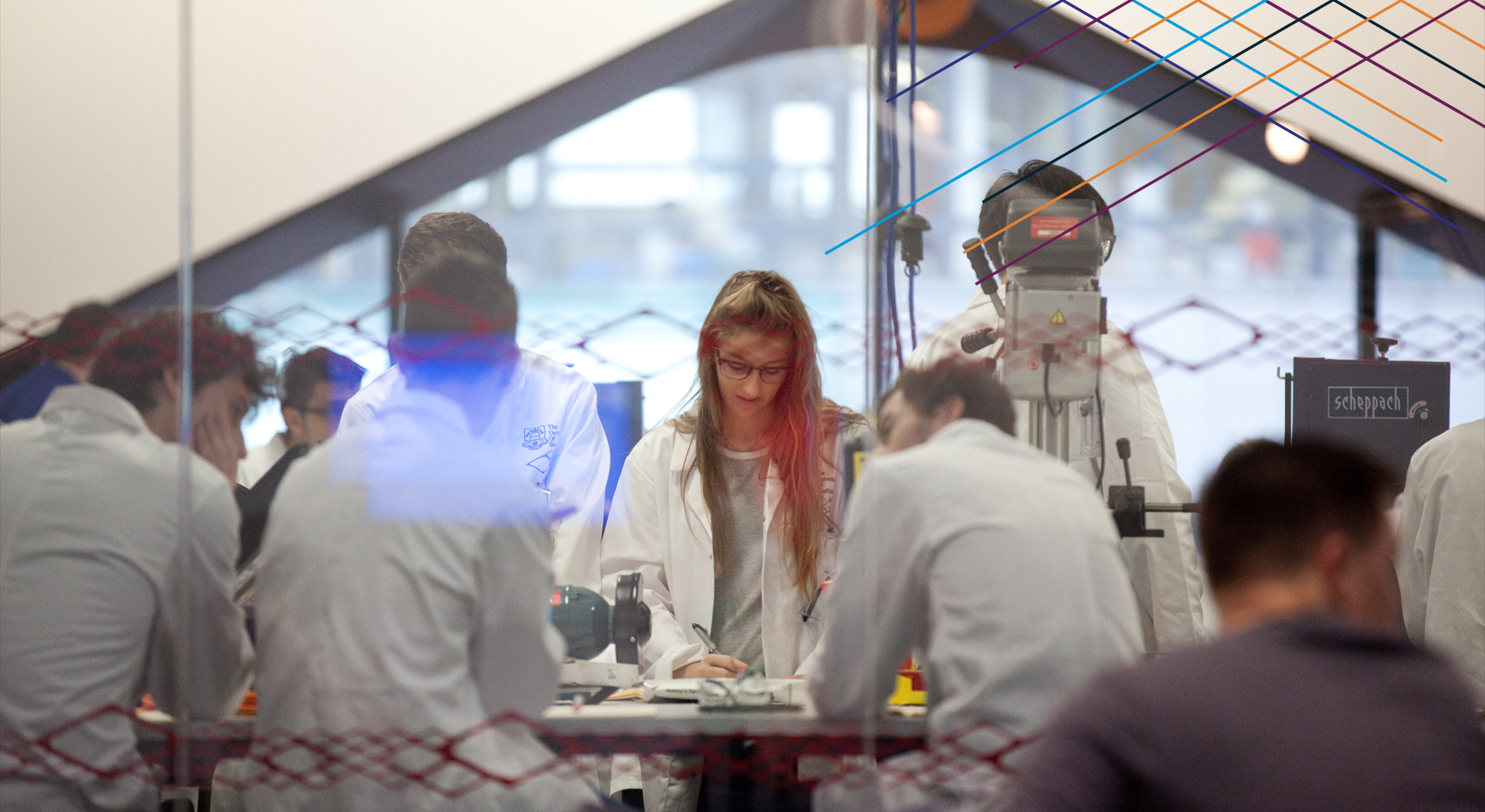Choosing a city like no other.
A city of stunning landscapes - the greenest in Europe, creative, welcoming, stubbornly independent, rich in culture and history, but with a modern outlook and a million things to see and do.

Discover the Sheffield Experience
Choose the University of Sheffield and you’re not just choosing one of Britain’s finest universities. You’re choosing a place to live that’s the best in Britain for student life. Our Students’ Union has been voted the best in the UK for the fourth year in a row in the National Student Survey (NSS) 2015 and our students have voted us top for social life for two years running:
Times Higher Education Student Experience Survey 2015 (joint first for social life and community atmosphere)
Times Higher Education Student Experience Survey 2014 (first for social life)
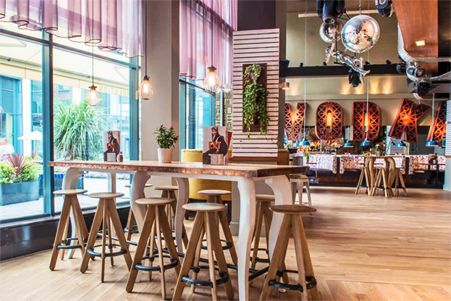
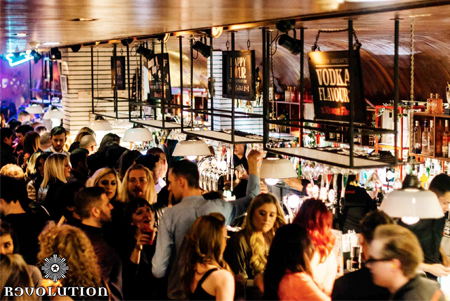
Revolution Bar & Restaurant, Sheffield.
You’re choosing a city like no other. A city of stunning landscapes – the greenest in Europe, creative, welcoming, stubbornly independent, rich in culture and history, but with a modern outlook and a million things to see and do.
There’s all the buzz and stimulation of city life, but none of the stress. Instead there’s the friendly, laid-back feel of a village and some staggeringly beautiful scenery. In Sheffield you get the best of both worlds.
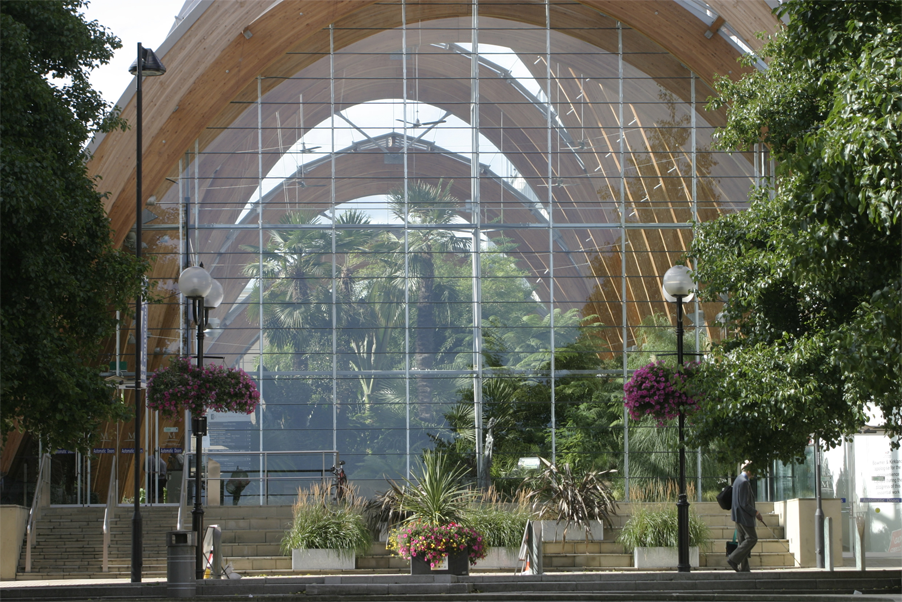
The city is located within the valleys of the River Don and its four tributaries, the Loxley, the Porter Brook, the Rivelin, and the Sheaf. 61% of Sheffield’s entire area is green space, and a third of the city lies within the Peak District national park. There are more than 250 parks, woodlands and gardens in the city, and an estimated 2 million trees, giving Sheffield the highest ratio of trees to people of any city in Europe. The city has a long sporting heritage, and is home to the world’s oldest football club.
Sheffield has been home to several well-known bands and musicians, with a notably large number of synthpop and other electronic bands originating from the city. These include The Human League, Heaven 17, ABC, and the more industrially inclined Cabaret Voltaire and Clock DVA. This electronic tradition has continued: techno label Warp Records was a central pillar of the Yorkshire Bleeps and Bass scene of the early 1990s, and has gone on to become one of the UK’s oldest and best-loved dance music labels.
More recently, other popular genres of electronic music such as bassline house have originated in the city. Sheffield was once home to a number of historically important nightclubs in the early dance music scene of the 1980s and 90s, Gatecrasher One was one of the most popular clubs in the North of England until its destruction by fire on 18 June 2007.
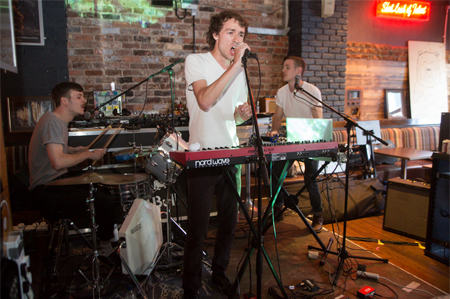

The Lyceum Theatre and the Crucible Theatre, which together with the smaller Studio Theatre make up the largest theatre complex outside London, are located in Tudor Square. The Crucible Theatre is the home (since 1977) of the World Snooker Championships and hosts many well-known stage productions throughout the year. The Lyceum, which opened in 1897, serves as a venue for touring West End productions and operas by Opera North, as well as locally produced shows. Sheffield also has the Montgomery Theatre, a small 420 seater theatre located a short distance from Tudor Square, opposite the Town Hall on Surrey Street. There are also a large number of smaller amateur theatres scattered throughout the city.
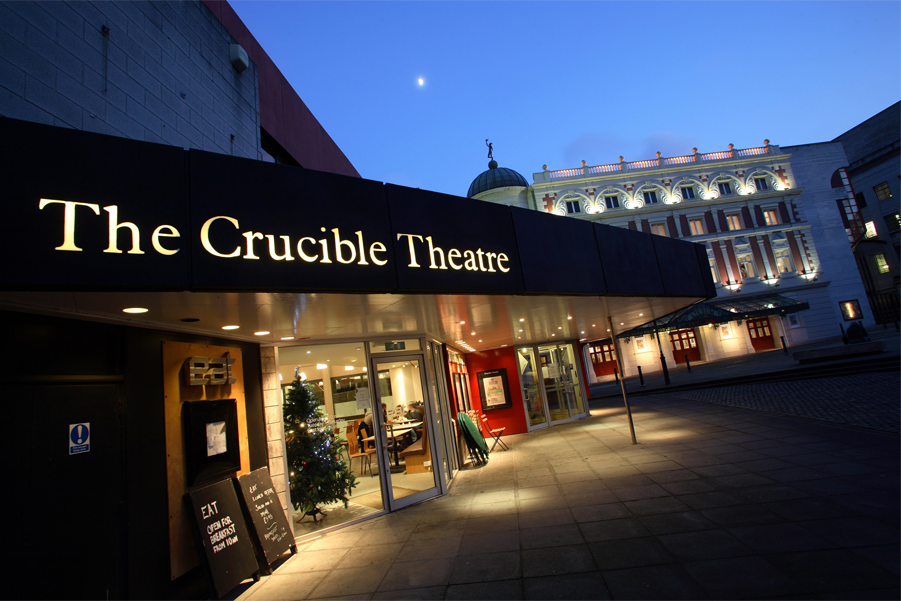
The Crucible Theatre and Lyceum Theatre, Tudor Square.
Sheffield has plenty of museums celebrating Sheffield’s industrial and creative past.
Visit the Millennium Gallery, Sheffield’s premier destination for art, craft and design to see the city’s unique Metalwork and Ruskin collections. Discover the real story of Sheffield in Weston Park, from its geological roots to the people, politics and music that shaped the modern city. Home to Sheffield’s visual art collection, Graves Gallery includes works by Cezanne, Burne-Jones, Turner, Bridget Riley and Damien Hirst.
Sheffield Industrial Museums Trust manages the museums dedicated to Sheffield’s industrial heritage. Kelham Island Museum showcases the city’s history of steel manufacturing. Catch a glimpse of life at home and at work in a rural scythe and steelworks dating back to the 18th century at Abbeydale Industrial Hamlet. Or visit Shepherd Wheel in Whiteley Woods, a former water-powered grinding workshop, Grade II listed, and a Scheduled Ancient Monument.
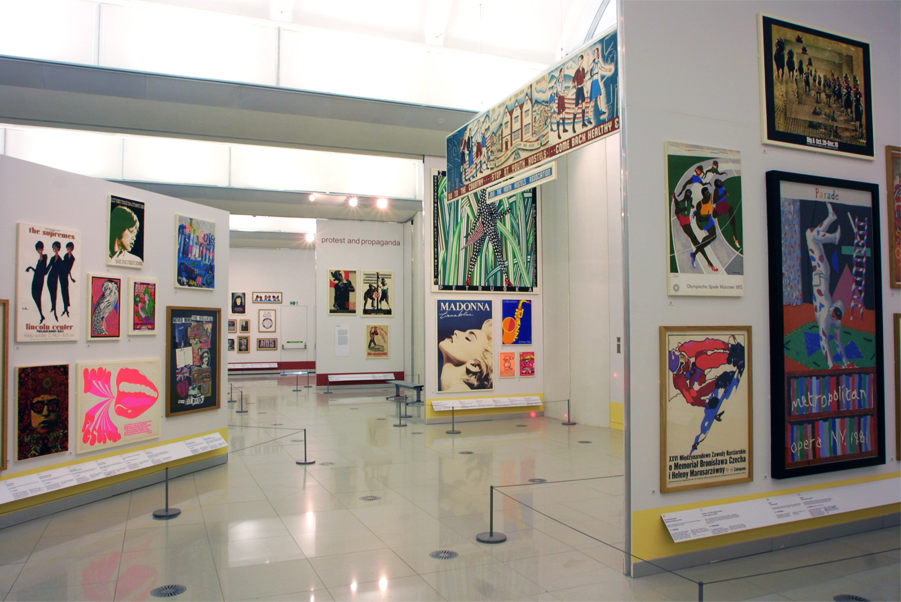
Exhibition at the Millennium Gallery.










